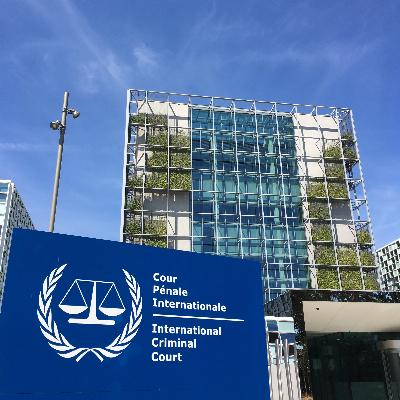"The Touro Institute on Human Rights and the Holocaust filed an amicus curiae brief to the International Criminal Court (ICC) last week in opposition to ICC Chief Prosecutor Karim Khan's intention to issue arrest warrants against Israeli Prime Minister Benjamin Netanyahu and Defense Minister Yoav Gallant, arguing that the ICC does not have jurisdiction over Israeli citizens and that Khan's actions are purely political in nature.
The brief, which was written by Institute Director Prof. Anne Bayefsky, states, ‘The Prosecutor’s request for arrest warrants against Israeli nationals exceeds this Court’s authority. The Prosecutor asks this Chamber to allow the Palestinian entity to delegate to this Court jurisdiction which it has never in history possessed itself, even though it does not meet the legal test for statehood, and then use that jurisdiction to issue arrest warrants against senior officials of a non-Party State which does not recognize its statehood. This violates the Rome Statute and fundamental principles of international law.’
It accuses Prosecutor Khan of violating the principle of complementarity ‘by remaining willfully blind to information about Israeli investigations that would have been necessary to assess whether this case was admissible.’
According to the Touro Institute on Human Rights and the Holocaust, Khan's ‘unprecedented choice to announce the request on live television confirms that his request for warrants of arrest against Israeli nationals (the ‘Request’) was a political matter rather than a legal one.’
It further states that under the terms of the Oslo Accords, the Palestinian Authority has no jurisdiction over Israeli citizens that it can transfer to the ICC, necessitating the rejection of Khan's request for warrants against Netanyahu and Gallant. In addition, it notes that 'Palestine' is not a state under international law that could exercise such jurisdiction to begin with.
‘The Request thus asks the Chamber to replace ICC’s jurisdictional principles with a magical process whereby in the initial position neither 'Palestine' nor the ICC has jurisdiction over Israeli nationals; 'Palestine' delegates jurisdiction (even though it does not have any); and then jurisdiction mysteriously appears and is exercised by the ICC,’ the brief states.
Addressing the issue of complementarity, whereby the ICC is supposed to respect the ability of states to conduct their own investigations into their alleged misconduct and crimes committed during the course of armed conflict, the brief noted that Khan canceled a planned visit to Israel in which he would have received details of Israel's investigative efforts at the same time he announced his intention to seek the warrants.
It states, ‘Because the Prosecution has remained willfully blind to the details of Israeli investigations, it cannot be sure the allegations in the warrant are not already being 'investigated… by a State which has jurisdiction.' This willful blindness is inexplicable.
The Prosecutor has recognized that Israel has a 'robust system intended to ensure compliance with international humanitarian law.' And Israel is carrying out the 'timely, independent examination and investigation' of 'credible allegations of crimes' that he called for: Israel’s Military Advocate General is already 'conducting examinations and investigations of possible misconduct in the context of operational activity, in accordance with its obligations under Israeli and international law' – not many years after the fact, as in other situations where the Prosecution has respected the complementarity principle, but while the conflict is intensively ongoing.’
The brief further noted the disparity between how the prosecutor has behaved in cases related to other states and Khan's behavior when Israel was the target of accusations. ‘OTP’s wilful blindness has also resulted in its failure to treat States equally. In Colombia, Guinea, Iraq/UK and other situations, the Prosecution worked with State officials for years to facilitate domestic investigations and prosecutions. In this case, just months after the conduct in question, the Prosecutor abruptly broke off cooperation with domestic authorities. In doing so, he proudly warned that we must apply the law 'equally' and not 'selectively.' Sadly, by treating Israel differently than Colombia, Guinea, and others, and departing from its complementarity policy mere weeks after announcing the policy, the Prosecution has done exactly what he warned us against – it has applied the law selectively, not equally.’
For all of these reasons, Prof. Bayefsky stated that ICC Chief Prosecutor Khan's request for the issuing of arrest warrants against Israeli leaders should be denied."
August 11, 2024
ICC amicus curiae brief: 'Request for warrants against Israelis purely political'

The International Criminal Court (File photo courtesy Wikimedia Commons)
Date
August 11, 2024
Title
ICC amicus curiae brief: ‘Request for warrants against Israelis purely political’, Arutz Sheva
Author(s)
Gary Willig
Original Source
